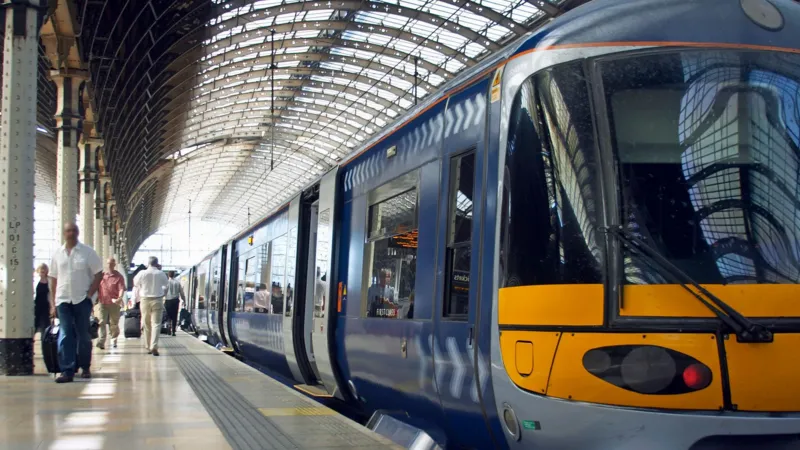Rail fares in England will be frozen next year for the first time in three decades, the government has confirmed.
The freeze, which will remain in place until March 2027, applies to regulated fares, including season tickets and off-peak returns that typically rise annually.
The most recent increase, introduced in March 2025, was 4.6%. Although rail fares traditionally rose each January based on the July retail price index (RPI) plus 1%, this formula has not always been followed.
Ministers say the freeze is intended to “directly limit inflation” and ease cost-of-living pressures ahead of Wednesday’s Budget, in which Chancellor Rachel Reeves is expected to announce tax increases to cover multibillion-pound funding gaps.
Around 45% of fares in England, Wales and Scotland are regulated, but the freeze only applies in England.
While train operators can raise unregulated fares, the government insists they usually track regulated prices.
Transport Secretary, Heidi Alexander said the measure was fully funded and would not reduce investment in the rail network.
Also, the Rail Delivery Group, representing train operators, called the move “good news for customers.”
While, government estimates suggest commuters on expensive routes could save more than £300. The freeze also aligns with plans to rebuild the rail system under Great British Railways, a new public body that will oversee tracks and trains.
Critics, including opposition parties, say the freeze comes after years of steep fare increases and warn it amounts to a temporary political gesture ahead of the Budget.
The government is also expected to announce £1.3bn to boost electric vehicle uptake, though new pay-per-mile charges for EVs are reportedly under consideration.
Meanwhile, tax changes remain uncertain, with speculation that the chancellor may extend income tax threshold freezes and scrap the two-child benefit cap—moves with major economic implications.



